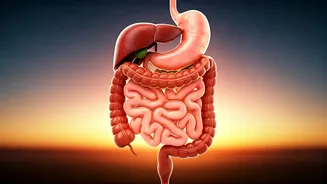Understanding Sleep Apnea
Sleep apnea is a serious sleep disorder characterized by pauses in breathing or shallow breaths. These pauses can last from a few seconds to minutes, occurring
many times per night. Often, people with this condition snore loudly, even after trying different remedies, and feel tired even after a full night's sleep. The brain and the rest of the body may not get enough oxygen if left untreated. There are two primary types: obstructive sleep apnea (OSA), the most common form, and central sleep apnea, which involves the brain not sending the right signals to the muscles controlling breathing. While there are various treatments, including CPAP machines, lifestyle modifications, such as dietary adjustments, play a significant role in managing the symptoms and enhancing overall well-being.
Fatty Fish Power
Fatty fish, such as salmon, tuna, and mackerel, are packed with essential omega-3 fatty acids. These nutrients have a potent anti-inflammatory effect, potentially reducing the inflammation in the upper airways. Chronic inflammation in this area can exacerbate sleep apnea. Moreover, these fish provide a rich source of vitamin D, another essential nutrient. Vitamin D deficiency is linked to sleep disorders. Consuming fatty fish twice a week can be beneficial. Preparing these foods can vary, from grilling to baking, enabling diverse culinary experiences that can improve health and well-being. Regular intake, alongside other lifestyle adjustments, can contribute to mitigating sleep apnea symptoms by reducing airway inflammation.
Magnesium-Rich Foods
Magnesium is a vital mineral that assists in many bodily functions, including muscle relaxation. Insufficient magnesium levels can contribute to muscle tension, which might affect the airways. Incorporating foods abundant in magnesium could help relax the muscles involved in breathing, potentially reducing the frequency of apnea episodes. Examples of magnesium-rich foods include leafy green vegetables like spinach, nuts, seeds, and avocados. Including these elements in meals provides multiple benefits, like supporting sleep quality and generally improving wellness. Regular inclusion of magnesium-rich foods into one’s daily meals helps optimize the body's natural processes. This supports better sleep patterns and reduces symptoms linked with sleep apnea.
The Fiber Factor
High-fiber foods are linked to improved overall health and can contribute to better sleep quality. Foods with high fiber content, such as whole grains, fruits, and vegetables, help with digestive health and maintaining a healthy weight. Excess weight can worsen sleep apnea. Fiber-rich diets can aid weight management because they promote a feeling of fullness. This helps control appetite and reduces the likelihood of overeating. Eating more fiber and reducing processed foods could assist in better sleep and reduce apnea episodes. Focusing on whole, unprocessed foods supports the entire body. The inclusion of high-fiber foods becomes a key element in managing and decreasing the impact of sleep apnea symptoms.
Dairy and Sleep
Dairy products, particularly those with added sugar, can sometimes affect sleep quality and potentially exacerbate sleep apnea symptoms in certain people. Some individuals may experience mucus build-up or inflammation triggered by dairy products. This can, in turn, affect the upper airways. Considering the impact of dairy, paying attention to how your body reacts is important. If you find dairy seems to worsen your symptoms, consider options such as reduced-lactose dairy products, or substituting with plant-based alternatives like almond or soy milk. The right dietary choices play an important part in managing the effects of sleep apnea. Understanding the impact of foods on your body is vital in developing effective strategies for improved sleep and overall health.














